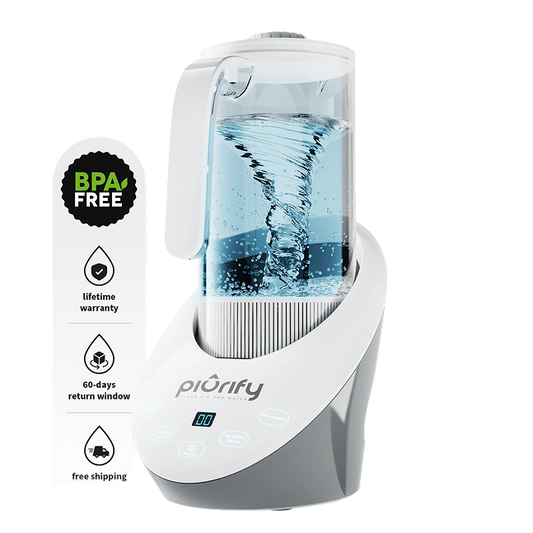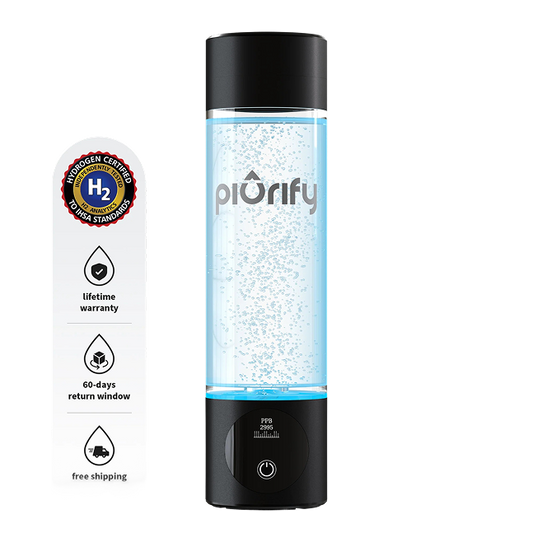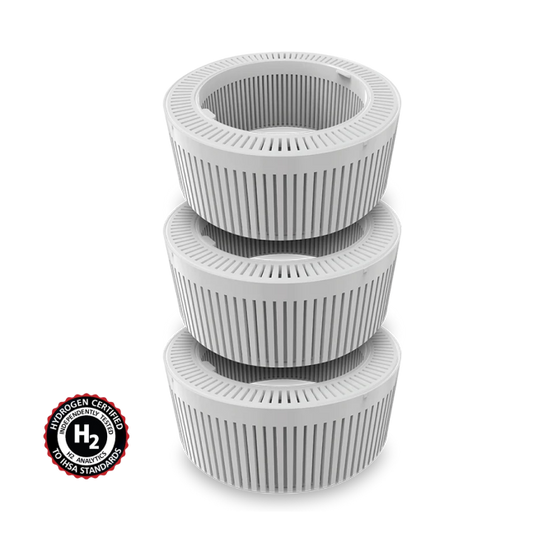Water Retention Symptoms and What To Do About It
Our bodies are around 50% to 60% water. But sometimes the body forcibly holds on to water and its water content exceeds that amount. This is a relatively common phenomenon known as water retention or edema.
Here's a look into why this happens as well as water retention symptoms, causes, treatments, and more.
What Is Water Retention?
Water (or fluid) retention happens when your body holds onto extra water instead of getting rid of it. Just like a sponge soaking up excess fluid, your body tissues, especially your limbs, start retaining water and refuse to squeeze it out even when they should. This can make your extremities (your hands and feet) feel swollen or puffy.
Water retention can have many causes. Sometimes it's because of what you eat — too much salt or not enough protein, for example. Hormonal changes, like those during your menstrual cycle or pregnancy, can also make you retain water. And though it might seem odd, not drinking enough water can actually cause your body to hold onto fluids because it's trying to prevent dehydration. Staying in the same position for a long time, hot weather, or changes in cabin pressure during a long flight can also be factors.
Some more serious causes of water retention include certain medical conditions, which can lead to chronic fluid retention with serious symptoms. Here are some examples:
- Water retention in the lungs (pulmonary edema) can cause shortness of breath or chest pain.
- Your kidney is the body’s water filter. So poor kidney function due to kidney disease can cause edema.
- Blood clots can obstruct blood flow in the blood vessels and cause swelling (e.g., in deep vein thrombosis).
- Cirrhosis of the liver and chronic heart disease are also major culprits. Water retention and heart failure are often connected — heart failure can lead to fluid buildup in various parts of the body due to the heart's inability to pump blood effectively.
- Medications, such as some blood pressure meds or anti-inflammatories, can also promote water retention.
It’s true that our bodies require loads of good-quality water to function normally, but too much of a good thing can also cause harm. Let’s look at how to tell if your body has been retaining too much unnecessary water lately.
Symptoms of Water Retention
Water retention causes certain parts of your body to feel bloated or puffy. Your clothes may feel tighter, and the way your body moves may be uncomfortable. Here are a few symptoms of retaining water in different parts of your body.
Swelling in Hands, Feet, and Ankles
Your hands, feet, and ankles may swell. Gravity plays a major role here since it pulls fluids down, leading to puffiness in these areas. Inflammation, which is your body’s response to injury or infection, can also cause swelling. If you notice your shoes or rings get tighter suddenly, you may have a good reason to suspect water retention.
Bloating and Abdominal Swelling
Bloating and abdominal swelling can be uncomfortable signs of water retention. When your body holds on to excess fluid, it often collects in the abdominal area. You may even experience feelings of tightness and fullness. This can make your clothes feel snug and leave you feeling sluggish.
Stiff Joints and Reduced Mobility
While stiff joints are more common with conditions like arthritis, water retention can certainly play a part. When excess fluid accumulates around joints, it can lead to swelling and discomfort, making movement difficult. This can affect your ability to bend, walk, or perform everyday activities comfortably.
Sudden Weight Gain
In some cases, you may notice an abrupt spike in your weight within a short period. This isn't always cause for worry. This weight gain is often temporary and can fluctuate throughout the day. It's typically caused by a rise in water weight due to dietary or hormonal changes, health issues, or certain medications. While water weight isn't the same as fat gain, it can make you feel bloated and uncomfortable.
How To Manage and Reduce Water Retention
Lifestyle adjustments are some of the best remedies for water retention, with medical interventions added in if needed. Here are some tips on how to effectively manage water retention:
- Reduce salt intake: High sodium levels in your diet can cause your body to retain water. Avoid processed foods, canned soups, and salty snacks. Opt for fresh fruits and vegetables, lean proteins, and whole grains.
- Stay hydrated: Drinking plenty of water helps flush out excess sodium and toxins from your body, reducing water retention. Aim for at least eight glasses of water a day, and consider adding natural diuretics like cucumber, celery, and watermelon to your diet. Both alcohol and caffeine can dehydrate the body and disrupt fluid balance, so limit your intake to relieve water retention.
- Exercise regularly: Physical activity improves circulation and helps your body expel excess fluids through sweating. Incorporate cardio exercises like walking, jogging, or cycling, along with strength training, to build muscle and support fluid balance.
- Elevate legs: If you experience edema and swelling in your legs and feet, elevate them above heart level when lying down to encourage fluid drainage. Use compression socks or stockings to prevent fluid buildup in the legs and relieve puffy ankles.
- Manage hormones: Hormonal fluctuations can lead to temporary water retention. Eating a balanced diet, getting enough rest, and managing stress can help alleviate these effects.
- Watch your medications: Some medications, such as nonsteroidal anti-inflammatory drugs, steroids, and certain antidepressants, can cause fluid retention. Consult your doctor if you suspect your medications may be contributing to water retention.
Incorporating these strategies into your daily routine can help you manage and reduce water retention, promoting better overall health and comfort. If water retention persists or worsens despite these measures, seek medical attention for further evaluation and guidance.
In severe cases of water retention, your doctor may prescribe diuretics to help your body expel excess fluids. It’s important to use diuretics under medical supervision to avoid electrolyte imbalances.
Start Taking Better Care of Your Health Today
Water is the key to life, but watch out for those pesky signs of water retention as they could indicate a bigger health crisis.
Effective hydration comes from prioritizing quality over quantity. Piurify is committed to designing creative solutions for safe, convenient, affordable, and effective water experiences. Check out our innovative line of products today for all your hydration needs.


